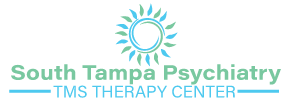If the only things you knew about obsessive-compulsive disorder came from popular culture, you might conclude that it’s fun to have — a collection of quirky personality traits that make someone unique. That’s far from accurate. But what is OCD? Obsessive-compulsive disorder is an anxiety disorder that stems from intrusive, unwanted, overwhelming thoughts.
These moments of OCD are the ones that don’t get the laughs, that you don’t get to see in shows like “The Big Bang Theory.” Let’s explore what we know about OCD, how it affects you and your loved ones and what you can do about it.
What is OCD?
Obsessive-compulsive disorder is a form of mental illness. As the name suggests, OCD has two distinct parts to it, and both are equally important in terms of diagnosis and treatment.
A person with OCD initially suffers from obsessions. These are recurring thoughts, images, or impulses that become overwhelming and entrenched in your behaviors, according to the International OCD Foundation. Further, these thoughts, images, and impulses might even be disturbing.
Compulsions flow out of the obsessions, according to IOCDF. They are actions that someone with OCD performs repeatedly to alleviate the pain and tension of the obsessions.
OCD is “a little like a needle getting stuck on an old record,” according to HelpGuide, a non-profit mental health and wellness website.
How OCD Affects Your Life
Obsessions and compulsions rise to the level of a disorder when they interfere with your life. Thus, OCD behaviors become all-encompassing and are almost impossible to resist. But rather than being cute and quirky, OCD can have severe effects for people in many areas, including:
- School
- Work
- Relationships
- Health
- Quality of life
- Family
What is OCD in real terms? Examples of the precise impact on your life can vary. But some may be lifestyle-oriented, such as a person who repeatedly checks to make sure the oven is off, or the door is locked.
Others can be more physically harmful, such as constantly washing your hands to the point your skin becomes raw, according to OCD UK, a non-profit organization.
Getting Help at South Tampa Psychiatry
While there is no cure for OCD, you can take steps to control and manage the condition. The treatments are like those used with other mental health conditions but are tailored to the unique needs of individuals.
Psychotherapy helps ease the agony of OCD. Trained counselors guide you to confront your challenges through techniques such as cognitive-behavioral therapy or “exposure and response prevention, according to the Mayo Clinic.
Also, medication can provide relief. Usually, doctors will start with a form of antidepressants, such as Prozac or Paxil but other psychiatric medications can also help. Your clinician will help you weigh the pros and cons.
Don’t let the stigma of the condition, or the way it’s illustrated in the media or on television, stop you from getting help. South Tampa Psychiatry offers treatment programs for OCD, and a range of other mental health concerns, including in our:
- Anxiety Treatment Center
- Bipolar Treatment Center
- Depression Treatment Center
- PTSD Treatment Center
Whatever treatment you choose, the first step is always having a clear-eyed answer for the question, “What is OCD?” Clinical experts at South Tampa Psychiatry partner with family and friends to establish the most effective treatment. So contact us today at 866.273.5017 for a consultation.







